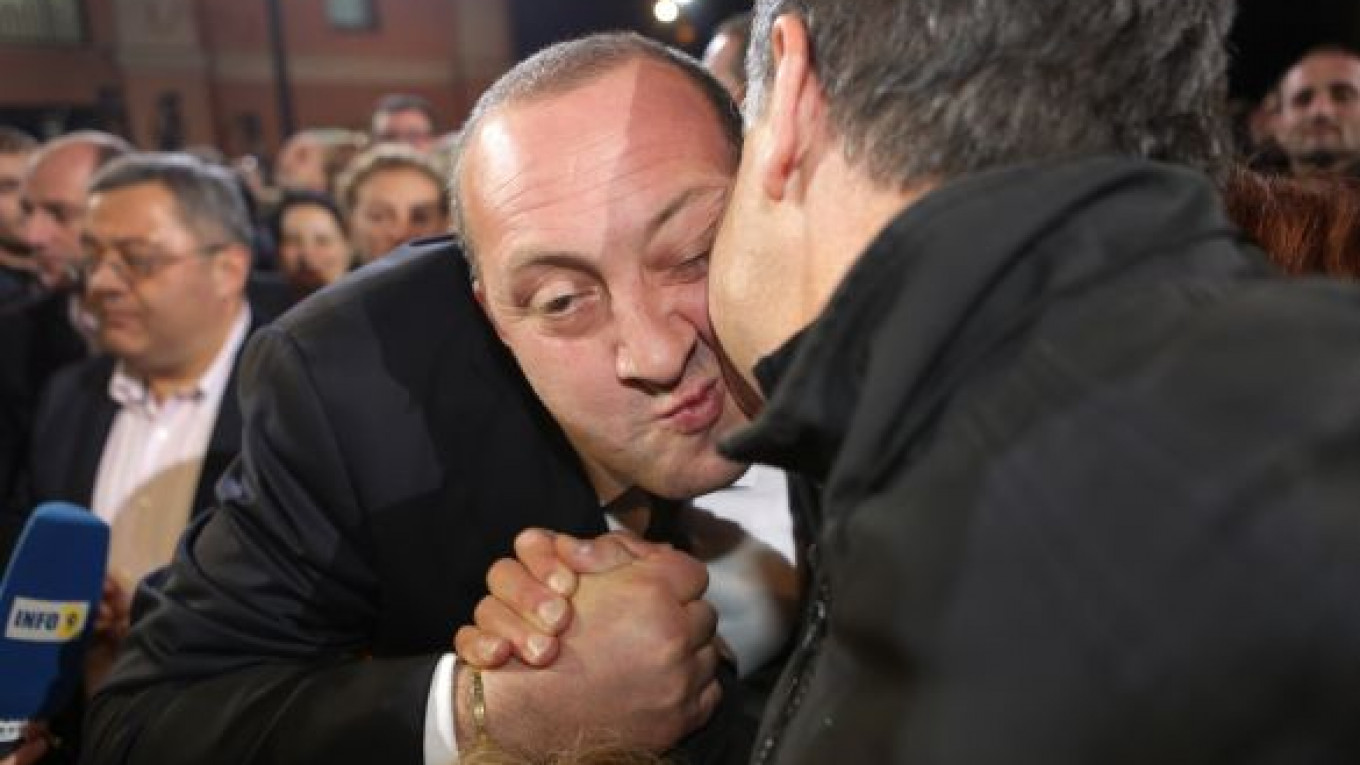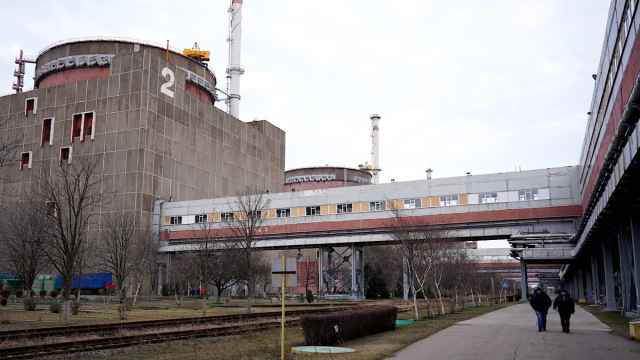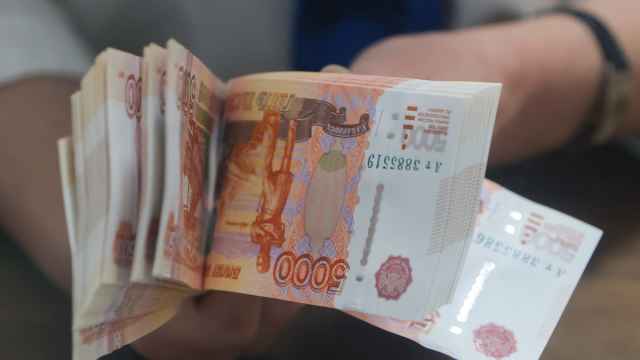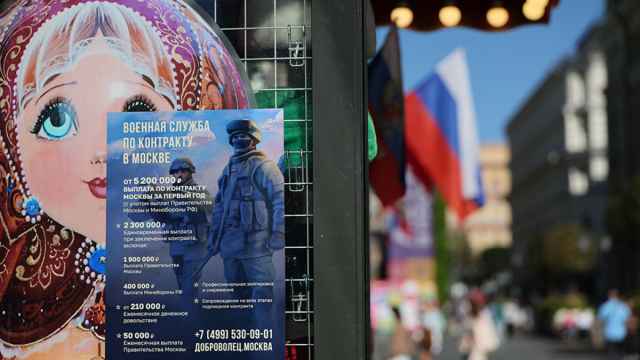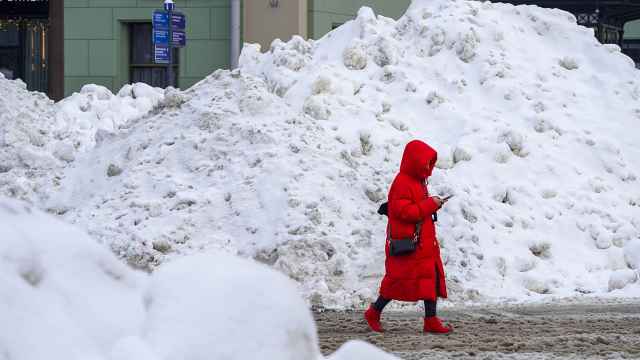TBILISI — Georgia's next president, Georgy Margvelashvili, fits in perfectly with Prime Minister Bidzina Ivanishvili's vision of a nation free of politicians who want to be "superman."
Margvelashvili, a little-known confidant of the billionaire premier, won a landslide victory in the former Soviet republic's presidential election Sunday after only a year in politics. The mild-mannered 44-year-old philosopher will bring to the presidency a different style than his predecessor, the confident, outspoken and exuberant Mikheil Saakashvili.
Margvelashvili was plucked out of academia and appointed education minister by Ivanishvili when his Georgian Dream coalition ousted Saakashvili's cabinet in an election. Within months, he had been promoted to deputy prime minister. Burly and balding, he looked awkward at a pre-election news conference Friday, fiddling nervously with a pen.
But he has a place on the political landscape that Ivanishvili dreams of in Georgia — one that is not dominated by oversized personalities like Saakashvili, former Soviet Foreign Minister Eduard Shevardnadze or Georgia's first president, Zviad Gamsakhurdia, and seemingly endless political infighting.
Predicting that the government and the new president will cooperate peacefully and serve out their full terms, Ivanishvili told Reuters: "I would like this tradition to continue and for Georgia not to look for 'supermen' any more."
"The president should have the qualities of a good manager, and Georgy has those qualities," he said.
"The president should not only be educated — and Georgy is a well-educated man — but should be able to take decisions that are out of the ordinary. Georgy has creativity. He is a good friend and a patriot."
Balancing Ties Between Russia and West
Margvelashvili, who has a doctorate in philosophy from Tbilisi State University and was rector of the Georgian Institute of Public Affairs, takes on a diminished role in the country because of constitutional changes regarding the position of president that are about to go into force.
He will be head of state and commander-in-chief of the armed forces, but the constitutional amendments shift executive power from the president to the government and parliament, a step intended to make Georgia a full parliamentary democracy.
Margvelashvili, who belongs to no party and has no serious political experience, may find it hard to assert himself.
"He will only be a weak president with a weak political background," Helen Khoshtaria, an independent political analyst said.
Fluent in Russian and English, his foreign policy goal is to pursue close ties both with the West and with Russia.
Margvelashvili underlined the importance of moving closer to Europe after voting Sunday, referring to it as "one of the most important milestones in Georgian foreign policy."
Georgia hopes eventually to sign an association agreement that would chart ways to a closer relationship with the European Union, despite resistance by Moscow. A more distant goal is membership in the NATO defense alliance.
Building stronger ties with Russia is likely to be even harder if Tbilisi moves further towards Europe's orbit. Relations remain tense: Russia has controlled two rebellious Georgian regions since a five-day war in 2008 which Georgia lost.
But Margvelashvili signaled that Tbilisi would not be deterred by Russian pressure, saying after he voted that the election was a vote for a Georgia that was "independent, whole and strong."
A Message from The Moscow Times:
Dear readers,
We are facing unprecedented challenges. Russia's Prosecutor General's Office has designated The Moscow Times as an "undesirable" organization, criminalizing our work and putting our staff at risk of prosecution. This follows our earlier unjust labeling as a "foreign agent."
These actions are direct attempts to silence independent journalism in Russia. The authorities claim our work "discredits the decisions of the Russian leadership." We see things differently: we strive to provide accurate, unbiased reporting on Russia.
We, the journalists of The Moscow Times, refuse to be silenced. But to continue our work, we need your help.
Your support, no matter how small, makes a world of difference. If you can, please support us monthly starting from just $2. It's quick to set up, and every contribution makes a significant impact.
By supporting The Moscow Times, you're defending open, independent journalism in the face of repression. Thank you for standing with us.
Remind me later.


